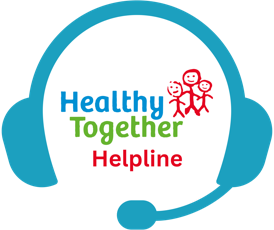To become a Peer Supporter, you must firstly have experience of breastfeeding. You will then be required to complete a training programme, provide references and consent to a DBS check.
The training is a standardised programme that reflects the UNICEF UK Baby Friendly Standards . The Infant Feeding component includes:
- Debriefing of breastfeeding experiences
- An awareness of basic counselling skills with the emphasis being on active listening
- How breastfeeding works
- Detailed work on how to help a mother to attach and position her baby correctly herself
- An awareness of some common breastfeeding problems, including emphasis on when to refer the mother to an appropriate practitioner
- An awareness of parenting issues. For example, lack of sleep, colic, routines that a peer supporter might be asked about
- An awareness of maternal mental health issues
- The timely introduction of solid foods
- Suggestions for mothers who are expressing milk for whatever reason
- Practising what a peer supporter can and can’t say in common situations and how to run a support group
Additional free training will be required for peer supporters.
The benefits of Peer Support
We have, over the years, reflected on the value of having Peer Support programmes and have received some wonderful feedback from parents.
Overwhelmingly, mothers acknowledged the role of supporters in helping them to continue breastfeeding for as long as they wanted. They identified their role as spanning from practical support on how to breastfeed to emotional and social support.
This mum said:
‘Going to Bosom Babies saved my sanity. This is not an exaggeration. I was unable to breastfeed due to a tongue-tie…I became depressed and felt I had let my daughter down… it took me a long time to bond with her because I felt guilty every time I gave her a bottle or saw someone else breastfeeding.
The support I got at Bosom Babies stopped the same thing happening a second time but also helped me to ease some of the guilt that surrounded my memories of my daughter’s first year. I will be eternally grateful.’
Many Peer Supporters have reported that their experiences of volunteering in this role have had a positive impact on them as individuals.
This includes feelings of increased confidence, the creation of a ‘sense of belonging’ and a knowledge and ability to support friends and family. Some have found it has given them strength in making a recovery from postnatal depression.
If you are interested or want to find out more about becoming a Peer Supporter then contact LPT’s Infant Feeding Team on:
lpt.fypcinfantfeedingteam@nhs.net
You can find all of the breastfeeding peer support groups across Leicester, Leicestershire and Rutland, and their contact information in our in interactive service finder map here. Simply add your postcode to narrow down the results to those closest to you.
Leicestershire Partnership NHS Trust is responsible for the writing, publishing and updating of the content on this page.




